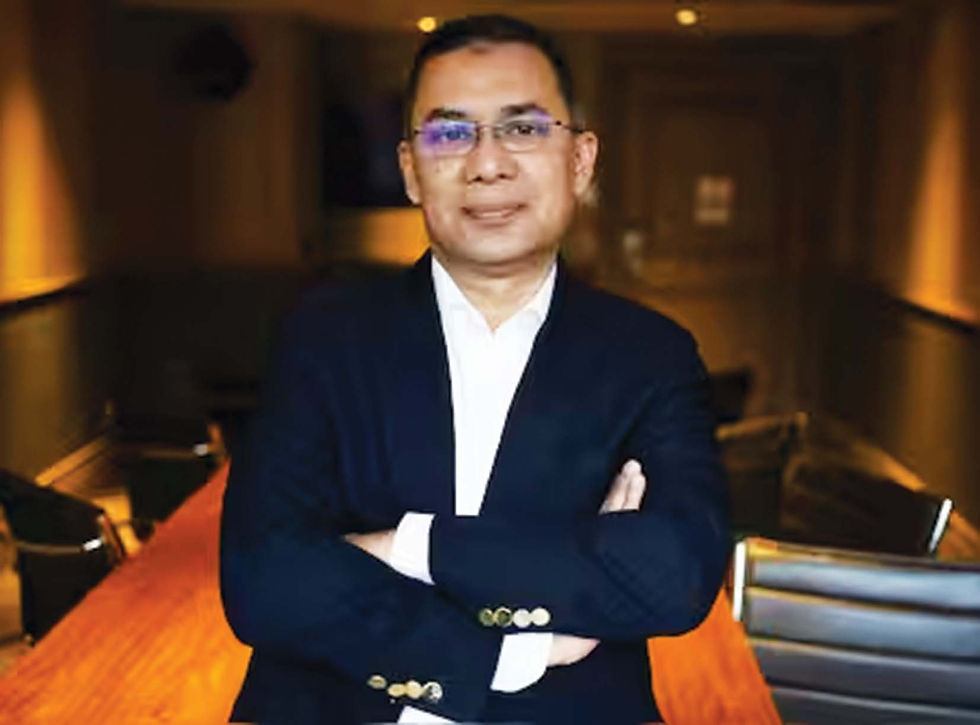Diplomat with a Dagger
- Kiran D. Tare

- Apr 26, 2025
- 3 min read
After the Pahalgam massacre, India’s foreign minister emerges as its wartime envoy-in-chief.

The Pahalgam massacre of more than 25 innocent civilians has comprehensively shattered the illusion that cross-border terrorism had been contained. It has propelled India into a diplomatic offensive not seen since the aftermath of the 2008 Mumbai attacks. While Prime Minister Narendra Modi vowed public vengeance, warning that the perpetrators would face retribution “beyond imagination,” the strategic charge has been handed to Subrahmanyam Jaishankar, External Affairs Minister.
Jaishankar has long been the architect of India’s assertive foreign policy. Post-Pahalgam, he has become its principal executor. The responsibility now rests on him not only to shape the global narrative in India’s favour but also to diplomatically isolate Pakistan while preparing the international ground for potential escalations.
Within hours of the attack, Jaishankar convened emergency briefings with envoys from the five permanent members of the UN Security Council and ambassadors from 30 other key nations. The corridors of the Ministry of External Affairs buzzed with urgency as diplomats from the United States, China, Russia, France and Britain were ushered into closed-door sessions. Representatives from Japan, Qatar, Germany, Italy and the European Union received dossiers and a clear message: India will not tolerate terrorism as business-as-usual.
As is his wont, Jaishankar has been characteristically clinical in giving Pakistan its comeuppance. A week prior to the Pahalgam strike, he had reminded the world that Pakistan’s “bad habits” had persisted since 26/11, referring to the coordinated terrorist attacks in Mumbai. The difference this time, he implied, was India’s resolve. “India has changed. I wish I could say the same about Pakistan,” he declared recently. “But they continue with the same playbook.”
The playbook is familiar: denials, plausible deniability, and shadowy links between state actors and terrorist proxies. But India’s response has drastically evolved. In a move heavy with symbolism and strategic consequences, India immediately suspended the Indus Waters Treaty within hours of the Pahalgam massacre.
Jaishankar’s tremendous credibility has been pivotal in steering international messaging through this crisis. He is not a bomb-thrower in the rhetorical sense, nor does he indulge in tub-thumping nationalism. Instead, he embodies a more surgical assertiveness. He is a diplomat who believes in calling bluffs, not raising decibels. His meeting with Israel’s ambassador to India, Reuven Azar, shortly after the attack was no coincidence. With Argentina’s envoy, he discussed strengthening bilateral ties and welcomed Buenos Aires’ condemnation of the attack. The subtext in both meetings was unmistakable: terrorism is no longer a regional nuisance but a global challenge. You are either with us or with the apologists.
What gives Jaishankar an edge is not just his fluency in foreign policy but his rapport with foreign policymakers. A former ambassador to both China and the United States, he has cultivated relationships across ideological lines and strategic divides. He can speak realist security jargon to Washington, evoke civilizational history with Beijing and cite multilateral legal frameworks in Geneva. He is as comfortable on social media as he is in Track 1.5 dialogues. Crucially, he has the full trust of PM Narendra Modi.
In the past, India’s responses to terror attacks were largely defensive and careful to avoid escalation. The Jaishankar doctrine is different. It is premised on deterrence through punishment and diplomacy through deterrence. It seeks not merely to ‘internationalize’ India’s grievances but to build a coalition of empathy and exasperation. The global situation favours India as well. While China had pledged to boost cooperation with Pakistan on infrastructure and mining projects, including developments in Gwadar Port, there are growing signs of strain between them with Beijing reassessing its investments.
Russia, on the other hand, has reaffirmed its special and privileged strategic partnership with India. President Vladimir Putin emphasized the commitment to deepen bilateral cooperation across all areas. Military cooperation remains robust, exemplified by joint naval exercises and the commissioning of Russian-made warships into the Indian Navy. All this is coming to roost has India prepares to deliver a ferocious response to Pakistan.
In the chessboard of South Asian geopolitics, the framing of moves matters. In this, Jaishankar is proving to be India’s grandmaster. The man who once penned foreign policy briefs is now scripting history. The world is watching, and he knows it.





Comments